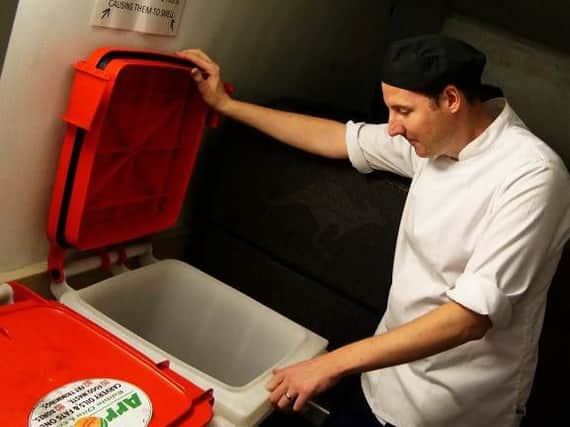Wigan's hospital trust reveals carbon emissions cut


The incredible feat came to light after Wrightington, Wigan and Leigh NHS Trust joined a city-region wide partnership in declaring a climate emergency last week.
NHS organisations in Greater Manchester have declared the crisis, committing to far-ranging action to slash carbon emissions and avert predicted illness and disease.
Advertisement
Hide AdAdvertisement
Hide AdIt makes the city region the first “integrated care system”- NHS bodies and council social care working together - in the country to declare a climate emergency.
As part of plans to cut carbon emissions, Wigan and Bolton have already jointly cut carbon emissions by 11,000 tonnes and reduced their energy spending by £1.7m a year.
Andrew Foster, chief executive at WWL, said: “At Wrightington, Wigan and Leigh NHS Foundation Trust, we are very proud of the steps we have made to reduce waste and carbon emissions and, I am pleased to say, that due to our fantastic estates and facilities department, we send zero waste to landfill.”
In 2017/18, the trust’s segregated recycled waste increased by 139 per cent (93 tonnes) compared to 2016/17 and in 2018/19 it again increased by 61 per cent, this includes the black bag waste generated by the wards/departments.
Advertisement
Hide AdAdvertisement
Hide AdThe waste is compacted on site by WWL’s portering team and then sorted and separated to be sent to an Energy from Waste plant.
The electricity from energy recovery is fed into the National Grid and the heat is utilised locally presenting opportunities for additional commercial development and improving resource efficiency.
The process produces bottom ash (the bulk of remaining materials), which is recycled for use as aggregate material in the construction industry.
Mr Foster added: “As well as sending zero waste to landfill, there are a number of processes and materials in place for staff, visitors and patients to assist in helping WWL to reduce the carbon footprint”.
These processes include:
Advertisement
Hide AdAdvertisement
Hide AdTriobins (recycling bins) - these are for the general public, visitors and staff to utilise for general waste, plastics, card (Mixed municipal recyclates) outside hospital entrances
Scrap metal skips for all metal items such as beds, metal cabinets, chairs, trolleys, crutches etc
Furniture / domestic Waste Skips for all bulky / furniture items such as wooden cabinets, chairs, tables etc
Cardboard baler - all segregated cardboard from packaging / supplies is compacted by the porters on site and sold
Advertisement
Hide AdAdvertisement
Hide AdBatteries – all portable batteries such as AAA, AA’s are recycled via Battery Recycling tubs
Toner / printer cartridges are all sent to be recycled
Patient mattresses – non-contaminated mattresses are sent for recycling and made into high-end animal bedding
Cooking oil – waste cooking oil from the catering department is collected in special containers and sent for biofuel
Food waste (from the Catering Department) – waste is sent for anaerobic digestion, which creates renewable energy and nutrient rich fertiliser
Advertisement
Hide AdAdvertisement
Hide AdThere is also a Bra Bank located at the back entrance of Wigan Infirmary where used, new or surplus bras can be deposited. These are collected by Against Breast Cancer’s recycler to raise vital funds for research into secondary spread breast cancer
Mr Foster added: “The trust also employs a waste officer who continues to maintain and establish environmentally-friendly programmes and initiatives across all sites including a mandatory e-learning module based on Safe Management of Healthcare Waste for all clinical staff, housekeepers, domestics and porters.
“This has all been achieved due to the pro-active approach of the estates and facilities division. We are very proud of the progress that the trust has made in this area, however, we would also fully recognise there is still a lot more to do and are keen to continue the good work.”